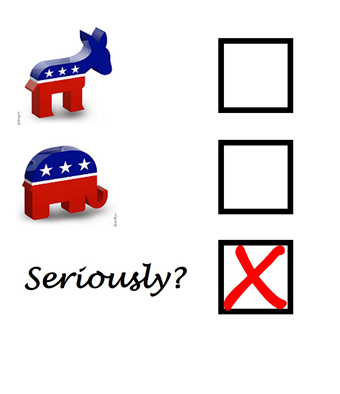THE THEOLOGICAL ENGINEER
Donald Trump and John Proctor
Christians and the 2016 Vote
By Jeff Laird


Single Page/Printer Friendly
Part 2: Reasons for Trump, Trumped by Reason

Neither Blogos.org, Got Questions Ministries, nor this site's editor necessarily agree with the substance of this post. All content is solely the opinion of the author. This ministry does not endorse candidates for political office.
The next post will discuss political arguments related to this issue in greater detail.

As a senior in high school, I portrayed John Proctor in Arthur Miller's The Crucible. In the climactic final scene, Proctor is given a choice: confess to witchcraft, of which he is not guilty, or be hanged. Others appeal to Proctor to consider the "greater good." If he lives, then this storm will pass, and he may live to see justice done. If not, he'll have died merely for refusing to give such a tiny token of submission. Others in town have rejected this deal, and been executed.
At first, Proctor agrees. He mouths a confession, but balks when asked to sign it. A false confession is bad enough, but to sign it means living with the public shame of compromising his integrity for the sake of his own life. Wracked with emotion, asked why he refuses to make such a tiny concession, he explodes in a tearful cry of self-loathing:
Because it is my name! Because I cannot have another in my life! Because I lie and sign myself to lies! Because I am not worth the dust on the feet of them that hang! How may I live without my name? I have given you my soul; leave me my name!In the end, Proctor comes to realize that moral compromise always comes at a cost. Worse, compromise spits on the graves of those who have stood on truth and principle, at any cost. As Proctor had asked, moments before his outburst:
"I have three children, how can I teach them to walk like men in the world, when I have sold my friends?I find myself now in an odd position where life imitates art. As a citizen whose first vote for president was in 2000, I've seemingly lived my entire life under the mantra of "the lesser evil." And, for the most part, the "lesser evil" was quite a bit lesser. At least, to the extent I could morally justify giving my assent to that person's authority.
Make no mistake: in human terms, false confession would easily have been the "lesser evil" for John Proctor. And yet, pushed to the brink, he realizes it is absurd to give power to evil, simply to prevent greater evil. He is especially convicted by the ghosts of those who made a more honorable choice, despite the consequences. So, Proctor chooses death, and truth, rather than a pyrrhic "victory" through moral compromise.
Peter and the apostles were willing to endure beatings, jail, and harassment rather than dilute their message. Paul never called on Christians to moderate their message in order to be relevant in Roman society. Dietrich Bonhoeffer didn't kowtow to Nazi demands to preach a more Reich-friendly Christianity. These men were willing suffer more than just death — they were ready to accept defeat.
Paul, Peter and Bonhoeffer knew that their choices not only meant personal loss, but forfeiting the good will of the powers that be. It meant, in literal terms, allowing the world to tear itself apart rather than bow a knee to "lesser" evil. It even meant letting "evil" win, for now.
Today, various Christians declare that voting for Donald Trump is necessary, as "the lesser of two evils," even while admitting that this evil isn't much "lesser" than the alternative. Like Proctor, I find myself torn between two desires. One is the desire to survive, to "win," to do whatever it takes to stop this particular menace. To fight in my own power and manipulation. The other is the desire to do what my soul, my children, and my spiritual legacy will endure.

Continue to Page Two
comments powered by Disqus
Published 5-16-16

